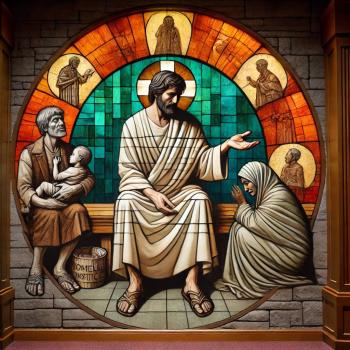“Ar dheis Dé go raibh a anam.”
 Working on my high school newspaper, a classmate and I wrote an article about suicide.
Working on my high school newspaper, a classmate and I wrote an article about suicide.
I don’t remember which of us physically wrote the article. (My friend was much, much smarter than I was, so I assume he did most of the writing.) I do remember talking with him about my interview with a suicide hotline official.
A singular fact from the interview has stuck with me, all these decades later.
Look at this list of familiar names. Notice anything?
Musician Richard Manuel – died March 4, 1986.
Actor Richard Jeni – died March 10, 2007.
Author Virginia Woolf – died March 28, 1941.
Musician Kurt Cobain – died April 5, 1994.
Athlete Junior Seau – died May 2, 2012.
Actress Dana Plato – died May 8, 1999.
Actress Lucy Gordon – died May 20, 2009.
Actor Ray Combs, Jr. – died June 2, 1996.
Fashion designer Kate Spade – died June 5, 2018.
Chef Anthony Bourdain – died June 8, 2018.
Author Ernest Hemingway – died July 2, 1961.
Musician Marcel Jacob – died July 21, 2009.
Actor Robin Williams – died Aug. 11, 2014.
Did you notice?
According to the suicide expert I interviewed, most suicidal people don’t take their lives around Thanksgiving, Christmas or New Year’s; around happy, holiday times. Depressed people stay inside and alone when the weather is cold, but so does everyone else.
But when the weather is nice, on warm, sunny days, when others are outdoors, suicidal people feel their depression most acutely, the expert told me. Suicides rise when the weather is better.
I’ve never confirmed it (and still haven’t), but it certainly seemed to make sense, even if only anecdotally.
Haunted by darkness and shadows, hounded by thoughts most of us can’t begin to imagine, anger and sadness turn inward. Gripped by despair that seems to get worse when others appear happy, people seek to end the pain, by ending their lives.
Despite growing awareness and empathy, the stigma around mental illness remains strong. I know from experience – nothing chills a conversation quite like mentioning taking medication for depression for nearly a decade.
For survivors, suicide is the most difficult type of death to accept.
Unlike long illnesses, shocking accidents, or even senseless murders that leave holes in our lives, suicides leave friends and family with tragic questions that can never be answered.
Talk of suicide always reminds me of the poem Richard Cory:
Richard Cory
By Edwin Arlington Robinson
Whenever Richard Cory went down town,
We people on the pavement looked at him:
He was a gentleman from sole to crown,
Clean favored, and imperially slim.And he was always quietly arrayed,
And he was always human when he talked;
But still he fluttered pulses when he said,
“Good-morning,” and he glittered when he walked.And he was rich—yes, richer than a king—
And admirably schooled in every grace:
In fine, we thought that he was everything
To make us wish that we were in his place.So on we worked, and waited for the light,
And went without the meat, and cursed the bread;
And Richard Cory, one calm summer night,
Went home and put a bullet through his head.
Suicide reminds us that all the riches of the world can’t make Richard Cory happy.
Suicide touches our own deepest sadnesses.
My friend from high school, who wrote the article with me? We remained friends for the next 30 years, through college and into adulthood. We hung out, invited one another to concerts and crossed paths at local music festivals.
On an unseasonably warm Nov. 24, in 2016, two months short of his 50th birthday, my friend took his life.
For suicide support, visit https://afsp.org/find-support/













